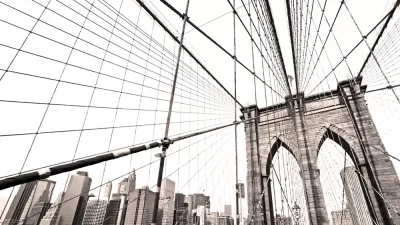World Bank President Jim Yong Kim explains why climate change is a poverty issue - and why we must tackle it today to ensure that carbon emissions do not continue rising after 2016. Establishing a world price on carbon will be difficult to achieve.
Cindy Huang blogs on an extended discussion that World Bank President Jim Yong Kim had with the News Hour's Jeffrey Brown on April 18. Brown's "Newsmaker Interview" of Kim, "World Bank Announces Goal to End Extreme Poverty by 2030" was aired and appears on video and text. The supplemental climate change discussion was captured on video and summarized by Ms. Huang.
The video begins with Brown asking Kim to explain why he considers climate change to be a poverty issue. Kim points to environmental and energy problems that need to be tackled today in The Phillipines and Africa. He also points to the urgency in reducing emissions in China, Europe and the United States.
Kim addressed the urgency of climate change and how World Bank is working to combat its effects. He says they must increase financial resources for sustainable energy, use innovative agriculture and partner with major cities to reduce their carbon footprint.
It would have been helpful had Brown asked Kim to define "sustainable energy" - a term he used throughout the 3:41 minute interview. However, Kim clearly played-up the need for determining "a stable price on carbon".
But getting different international powers to agree on things like the price of carbon has been one of the challenges in the effort to curb climate change. Kim said once that is decided, the market forces will kick in and regulate emission.
After emphasizing sustainable energy, carbon pricing and "climate-smart agriculture", Kim turned his attention to "cleaner cities".
Kim cites the efforts of New York City as an example of a successful urban clean-up. New York is on track to have reduced its carbon footprint by 30 percent by 2017, reaching their target goal ahead of their 2030 deadline.
He also cited transportation improvements in New Delhi where "all their buses and taxis run on clean natural gas".
FULL STORY: World Bank President: Climate Change Is Urgent 'Today' Problem

Planetizen Federal Action Tracker
A weekly monitor of how Trump’s orders and actions are impacting planners and planning in America.

Map: Where Senate Republicans Want to Sell Your Public Lands
For public land advocates, the Senate Republicans’ proposal to sell millions of acres of public land in the West is “the biggest fight of their careers.”

Restaurant Patios Were a Pandemic Win — Why Were They so Hard to Keep?
Social distancing requirements and changes in travel patterns prompted cities to pilot new uses for street and sidewalk space. Then it got complicated.

Platform Pilsner: Vancouver Transit Agency Releases... a Beer?
TransLink will receive a portion of every sale of the four-pack.

Toronto Weighs Cheaper Transit, Parking Hikes for Major Events
Special event rates would take effect during large festivals, sports games and concerts to ‘discourage driving, manage congestion and free up space for transit.”

Berlin to Consider Car-Free Zone Larger Than Manhattan
The area bound by the 22-mile Ringbahn would still allow 12 uses of a private automobile per year per person, and several other exemptions.
Urban Design for Planners 1: Software Tools
This six-course series explores essential urban design concepts using open source software and equips planners with the tools they need to participate fully in the urban design process.
Planning for Universal Design
Learn the tools for implementing Universal Design in planning regulations.
Heyer Gruel & Associates PA
JM Goldson LLC
Custer County Colorado
City of Camden Redevelopment Agency
City of Astoria
Transportation Research & Education Center (TREC) at Portland State University
Camden Redevelopment Agency
City of Claremont
Municipality of Princeton (NJ)



























